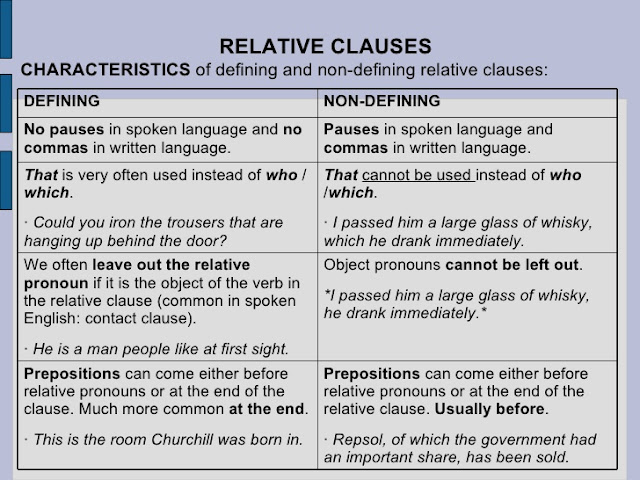Defining relative clauses
We use defining relative clauses to give essential information about someone or something – information that we need in order to understand what or who is being referred to. A defining relative clause usually comes immediately after the noun it describes.
They’re the people who want to buy our house.
Non-defining relative clauses
We use non-defining relative clauses to give extra information about the person or thing. It is not necessary information. We don’t need it to understand who or what is being referred to.
My sister Clare, who lives in Oxford, is doing the London marathon this year.
Relative Pronouns
who
|
people and sometimes pet animals
|
defining and non-defining
|
which
|
animals and things
|
defining and non-defining; clause referring to a whole sentence
|
that
|
people, animals and things; informal
|
defining only
|
whose
|
possessive meaning;
for people and animals usually; sometimes for things in formal situations
|
defining and non-defining
|
whom
|
people in formal styles or in writing; often with a preposition; rarely in conversation; used instead of who if who is the object
|
defining and non-defining
|
No relative pronoun
|
when the relative pronoun defines the object of the clause
|
defining only
|














No hay comentarios:
Publicar un comentario